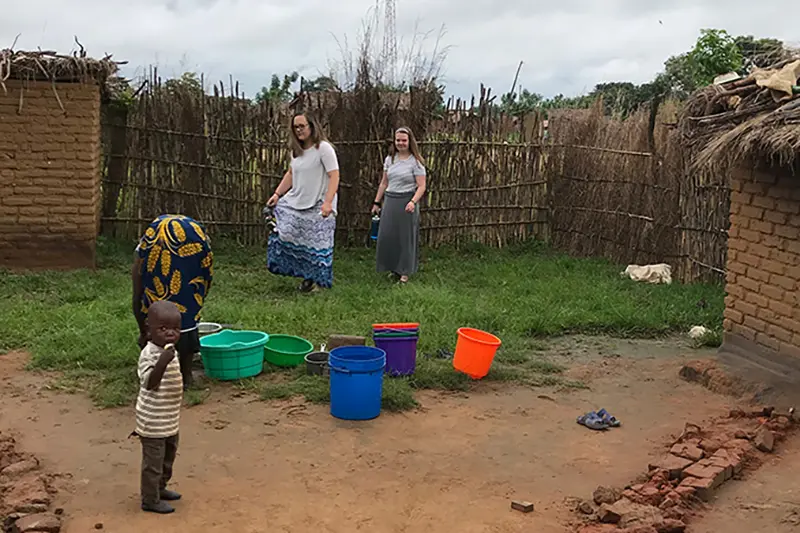-
-
- Financial Aid
- Financial Aid
- Scholarships
- Loans
- Grants
- Federal Work Study
- Additional Resources
-

In January 2019, students from sustainable agriculture and principles of community development classes traveled to Malawi and Zambia in southern Africa to study sustainable agriculture and public health practices.
Every day started with the team eating breakfast and sharing a devotional time together, but beyond that, their day-to-day schedule changed constantly. From visiting clinics to staying overnight in villages, the team was constantly busy. They collected data, took surveys, and tried to get a feel for what life looks like for an African villager.
Claire Heyen, a senior Public Health major, noted the wide range of activities the group took part in during the trip. “Sometimes we would visit a non-profit and learn what they’re doing. Other days we went into villages and did community participatory activities,” she said.
Senior Sustainable Development major Jenny Nelson added, “We did some village stays where we were expected to [help complete] part of the chores. We’d go into agricultural fields and actually work in them. We tried to get an idea of what a day looks like for people from different villages.”
The group also visited an HIV clinic and helped villages with community mapping, which allowed community members to render portraits of their lifestyles through observing their geographies and societies.
In addition to the physical tasks the team completed, the team also fostered a new perspective of the world in the context of development, health, and faith. In particular, Nelson came to see the value in seeing the villagers for who they were—people, just like her.
“Helping people understand who they are in Christ translates into other parts of the world ... People are valuable,” Nelson said.
This mentality helped Nelson and her peers look at the trip’s purpose from a different point of view. Rather than focusing on fixing people’s problems, the group focused on getting to know those people and their stories.
The trip touched Heyen as well, helping her recognize that everyone is a child of God and revealing how Christians can play a role in helping communities on a global scale. She also mentioned the impact the trip has had on her spring classes as she pursues her Public Health degree.
“Getting to see things first-hand was really neat for me,” she said. “That was one of my favorite parts of the whole trip, getting to experience their way of life ... These are problems right here in front of my face, not just something I’m reading about in a textbook.”
The students returned to the States in late January, but have continued to reflect on life in Africa during the spring semester.